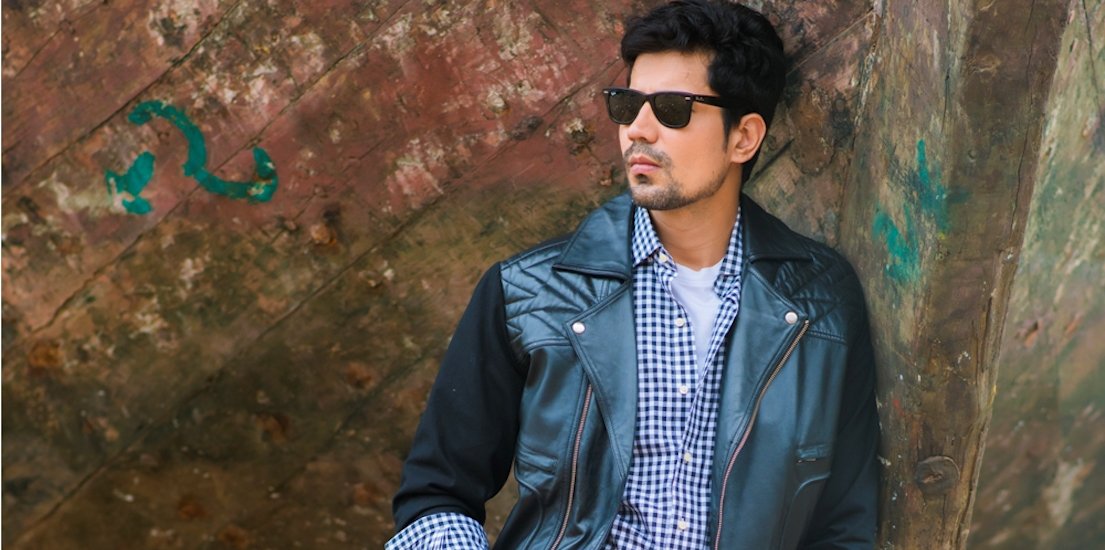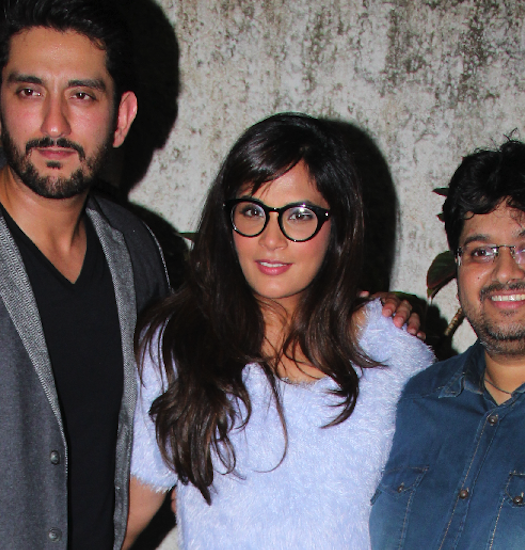I don’t choose projects based on the amount of money – Sumeet Vyas
Actor Sumeet Vyas is crystal clear about most things in life. From having passionately done theatre even when his father dissuaded him to do so, to selecting roles where he could try something new and learning the art of balancing commercial and unconventional work; Vyas’s 16-year-long journey has been full of hard work and smart choices. The actor cum writer who is known for web series like Permanent Roommates and TVF Tripling talks to Pandolin about his upcoming Bollywood film Ribbon and a lot of other things.
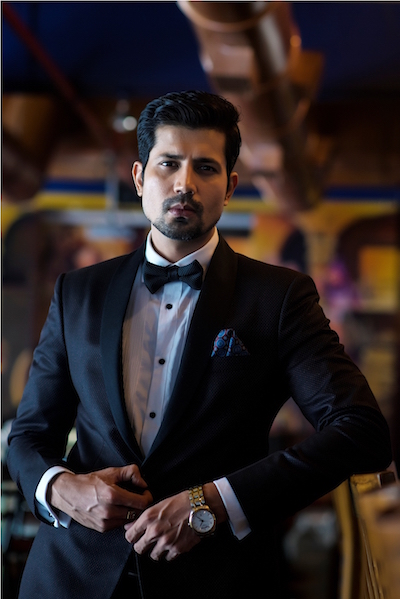
Sumeet Vyas
How did you bag Ribbon ?
The director of Ribbon, Rakhee Sandilya, had seen Permanent Roommates and some of my other works too. We met and she told me about the story of the film. I really liked the story and the approach with which she wanted to make this film. The story is about an urban couple and how the pressure of life affects their relationship. The story goes from the first year of their marriage to the fifth year.
You’ve played a similar character in Permanent Roommates, which was also about an urban couple. How will this be different from your digital avatar?
The character is very different as I am not playing a goofy guy. This is about a normal person who has grown up with his own prejudices in life. We have all grown up watching our fathers work while our mothers stayed at home, taking care of the house. And I feel that our generation is trying to break that circle. We feel that both women and men are equal as both of them have equal right to work, holiday and party and do all the house work.
Although a part of our brain has accepted this format, but there’s still a part of the brain which has grown up watching something else, so there is a constant fight that keeps happening even when we are doing the right thing. Especially in the case of men; a part of our brain tell us that we are doing something great but the fact is that we are just doing what we are supposed to do. So the film taps that emotion and that part of urban life. Also, the way that they shoot it will be very realistic as Rakhee is a documentary filmmaker, so she’ll shoot it like a documentary. There is a basic structure of dialogues and then everybody will improvise according to the scene and situation.
I don’t want to repeat any roles that I have already been done
Which role (Permanent Roommates or Ribbon) do you relate to more on a personal level?
For every character that I play, there is a part of me which I tap into. When I play Mikesh (Permanent Roommates), I tap into my goofy part. There is a part of me which is goofy, stupid and doesn’t do the things right. But with the character that I am playing in Ribbon, I’ll be tapping into the more real part of me, which is also the orthodox part of me, which we cover up very smartly. Most of us have grown up in normal, basic and middle class families with middle class values. I have grown up in a Marwari household. Therefore I’ll be tapping into that, making it a very realistic portrayal of the character. Hence, right now I would say that I relate more to this character in Ribbon.
READ: SUMEET VYAS AND NIDHI SINGH – REIGNING STARS OF DIGITAL MEDIA
So at what stage is the film right now?
We are doing workshops right now. We have done a few workshops with Kalki and I am doing my set of homework with the director and the writers. We’ll start shooting soon.

Nidhi Singh & Sumeet Vyas in Permanent Roomates 2
Kalki is known for her unconventional choice of films. What was your first reaction when you got to know that you’ll be playing the lead opposite her?
I was extremely happy. Also, I know Kalki since we both do theater and keep bumping into each other. But we are working together for the first time. Her body of work says a lot about the kind of actor Kalki is. She has always pursued interesting and new age stories. Even while doing workshops with her, you get to know how open she is as an actor. There is no awkwardness at all, which is a great thing.
As an actor, is there an acting method that you follow?
As an actor, you’re supposed to observe people. That’s the beauty of being an artist. The more interesting life you lead, the more interesting people you meet, it is then that you have more interesting stories to tell and more interesting characters to portray. I think Mikesh is a bit of all the goofy people that I’ve met in my life including some of my friends who are pretty goofy and sometimes really annoying. So I borrow a little bit of Mikesh from all of them.
For every character that I play, there is a part of me which I tap into
An observation about your work is that you’ve been very selective about your projects and the ones you’ve done are the ones you’ve excelled in. How do you choose the roles you want to play?
I don’t want to repeat any roles that I have already been done. Twenty years down the lane, I want to look back at work that I’ve done and feel proud of all the different stories that I’ve been a part of. When I choose a project, I wish to become part of an interesting project. When I did Parched, I really wanted to be a part of that project because it was such a great film and the role was so interesting.
When I saw the videos that The Viral Fever (TVF) made, I just wanted to work with them. I didn’t know what part they were going to offer me. But I liked their approach and thought it would be interesting to work with them. I think that’s more important. I don’t choose projects based on the amount of money that I will make or for a super-hit film. I can’t do that kind of work. Also there’s no guarantee that if you are part of a big project, then it’ll do well. So you might as well do projects that are interesting. Even if they doesn’t do well, you can be proud of the time you’ve spent doing them.
READ: TOP INDIAN TRENDSETTERS OF THE INTERNET WORLD
Have you ever said no to a big project or film because the role was not substantial?
I have. When there are films with bigger stars, the entire film revolves around them. I don’t mind playing a smaller part but the part that you’re offered should not be irrelevant. Since I also write, therefore I know that some parts that the writers write are only the writer’s friend. They are not the actor’s friend. They only solve the writer’s purpose of spreading some information about the story. But there’s no requirement in those roles. I am able to identify such roles and choose to not do them.
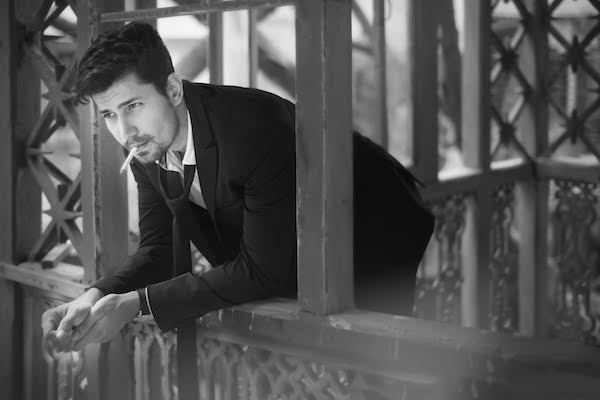
Sumeet Vyas in TVF Tripling
Is it not difficult to say no?
It is. But, in a year, I do one or two projects which are only for the money. And then I save up that money so that I can do my kind of work for the rest of the year. So the idea is to balance it out and not get greedy with money because it is very easy to fall into that trap. I was doing television and had a chance to continue with that because it pays you a lot but if I get used to this kind of money, I will never be able to chase good work.
I don’t mind playing a smaller part but the part that you’re offered should not be irrelevant
Being a writer yourself, how does that streak help you perform better as an actor and vice versa?
Writing gives you a larger perspective of the story where the work of an actor is limited. You know your boundaries and are supposed to work in that circle and not take over other things. Writing gives you a perception of how small a contribution you are making as an actor.
Taking a little step back to your initial background. I read that you’ve seen your father struggling for money. How has that influenced your choice of career? Was acting always the first choice?
My father always told us that we only have one life to live and if we were to fail, we might as well fail doing something that we like. And it doesn’t matter whether you make a lot of money or become extremely successful or not. You’ll be content that you did what you wanted to.
With money, I have seen the lowest of low. I come from proper poverty. But I am doing well now and I wish to continue doing really well in the future as well. Money does not scare me because I’ve seen what it is and what it feels like when it’s not around. Now that it’s around, I feel comfortable because I have the luxury to do the kind of work that I always wanted to do.
READ: ACTING DID NOT START AS A PROFESSION, IT STARTED AS LOVE – ADIL HUSSAIN
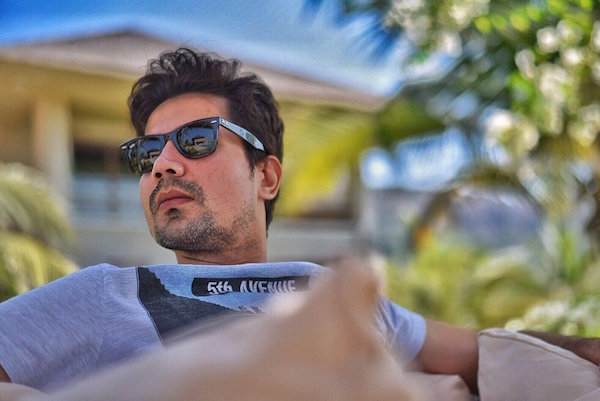
Sumeet Vyas
Also, your father is a graduate of National School of Drama and has written extensively for TV shows. He quit theatre and started writing for financial stability. He’s also said to have dissuaded you from pursuing theatre as it involved a lot of hard work. But what kept you close to theatre?
Yes, he did. He did theatre for a quite long time but after my sister and I were born, he quit it and started writing for TV. Achieving a balance in life is a lesson that I have learnt from him.
When I started doing theater, I was a complete loser. I was a fat kid who was not good at studies and had managed to get a job but nobody was taking it seriously. When I took theater, it introduced me to literature because till then, had no idea about Shakespeare etc. I didn’t know who these people were but I wanted to a part of those conversations, so, I started reading and it enriched me as a person and and gave me a vision as an artist about the kind of work I wanted to do. That’s why the connection with theater is deeper and it’s much more emotional. I end up losing a lot of work because of it. For instance, I did a play in Bhopal which paid me 500 rupees for which I left an ad that could have paid me 3-4 lakhs. But the thing is when you commit to a play, then you commit to it and then you don’t think about money.
Money does not scare me because I’ve seen what it is and what it feels like when it’s not around
Overall, are you happy and satisfied with the way that the industry has responded to you?
Yes, I am happy and wouldn’t want to change anything. For an artist, the biggest treasure is the life that they lead. Had I not led an interesting life with all the patience and impatience, then I probably wouldn’t be the artist that I am today.
Where do you see yourself say 10 years down the line?
In the coming years, I wish to do mainstream cinema, the kind of cinema that people would remember for the next hundred years. That’s the plan.

